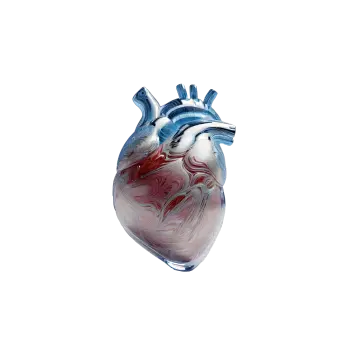Quick version
Swedish study shows clear connection
People who eat a low-fiber diet are at increased risk of developing unstable plaques in the coronary arteries – this was shown by a study from Lund University, published in Cardiovascular Research. Data from just over 24,000 Swedes aged 50-64 forms the basis for the study, the data was collected within the SCAPIS project.
Brief about the results from the study
The researchers analyzed the occurrence of plaque types in the participants' coronary arteries using computed tomography. Those who ate the least healthily had:
- 44% incidence of coronary artery changes
- 1.6 times higher risk of dangerous plaques compared to those who ate the healthiest
In the group of people whose diet was the healthiest, the corresponding figure was 36% with changes, and only 3.7% were at risk of dangerous plaques.
What is atherosclerosis and dangerous plaque?
Atherosclerosis (atherosclerosis) is a process in which fat, cholesterol and other substances are deposited in the walls of blood vessels and form plaques. Some of these plaques are so-called unstable or "dangerous plaques" - they have a thin capsule and a large fatty core that can rupture easily. When they rupture, blood clots can form, which in turn can cause heart attack or stroke.
Overall, the study shows that a low-fiber diet not only increases the amount of plaque, but also makes it more dangerous.
How to reduce the risk
To reduce the risk of dangerous plaque in the heart's vessels, it is recommended that you:
- increase your intake of dietary fiber, which you find in whole grains, vegetables, fruit and legumes
- reduce your consumption of red meat and processed foods
- choose healthy fats, which are found in olive and rapeseed oil
- get moving – regular exercise improves vascular health
Test your blood lipids – get a handle on your heart health
Get a handle on your potential risk of developing cardiovascular disease. Elevated blood lipids and inflammation in the body are two important risk factors for unstable plaques. A simple cardiovascular test via blood sample will give you answers about your cholesterol levels and other relevant markers and whether you need to make any changes to your diet or lifestyle.
























